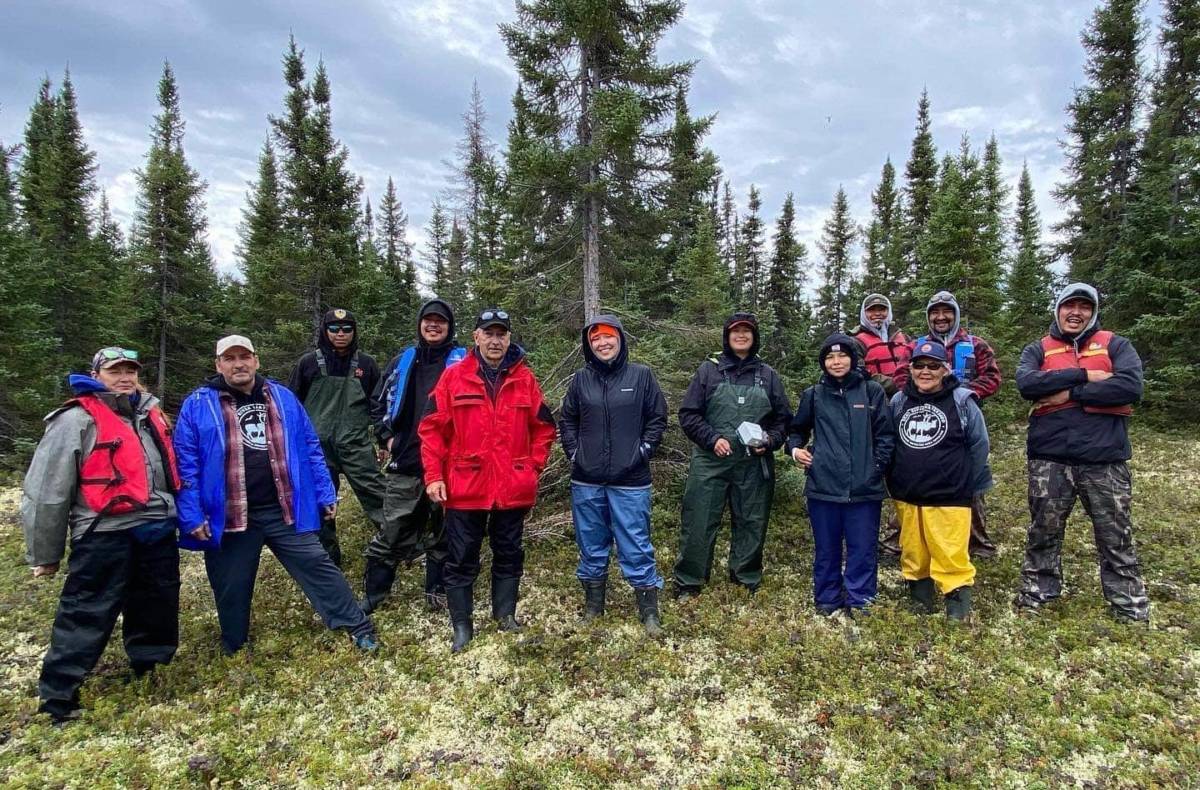“Indigenous peoples are offering a broader, deeper model of conservation — one that is as good for people as it is for the land,” wrote Ethel Blondin-Andrew, the first Indigenous woman to serve as a federal cabinet minister, and Valérie Courtois, the director of the Indigenous Leadership Initiative, in their opinion piece in The Globe and Mail in the days leading up to COP15, the United Nations Biodiversity Conference that took place in December in Montreal.
Ethel and Valérie highlighted the potential for Canada to become a global biodiversity leader by prioritizing long-term support for Indigenous-led conservation and stewardship efforts. Efforts that not only provide environmental benefits, but myriad societal and economic benefits including cultural revitalization, better public health outcomes, and job creation.
Over the course of COP15, it was heartening to see a string of significant announcements in support of Indigenous-led conservation initiatives, including:
$800 Million to Support Four Indigenous-Led Conservation Initiatives
The Government of Canada announced an investment of $800 million over seven years in support of four large-scale, Indigenous-led conservation projects. These four initiatives will establish permanent protected areas utilizing an innovative model — Project Finance for Permanence (PFP) — which brings together governments and the philanthropic community to provide long-term funding for the protection of lands and waters.
Coverage:
- The Globe and Mail: Ottawa to invest $800M in four Indigenous-led conservation efforts across Canada
- CBC: Trudeau announces $800M for Indigenous-led conservation initiatives
First Nations National Guardians Network
The Indigenous Leadership Initiative and the Government of Canada jointly announced the creation of a first-of-its-kind First Nations National Guardians Network. Indigenous Guardians are trained experts who monitor ecological health, maintain cultural sites, and manage protected areas — they serve as the “eyes and ears” on traditional territories. Indigenous Guardians had long called for a national network to connect Guardian initiatives from coast to coast to coast. The establishment of the First Nations National Guardians Network is recognition of the decades of work and leadership of Indigenous Guardians and the vital role they play in the stewardship of lands and waters.
Coverage:
- The Narwhal: Indigenous guardians connected by new national network in Canada — the first of its kind in the world
- CBC: New network for Indigenous land guardians welcomed in North
Seal River Watershed IPCA Feasibility Assessment
The Seal River Watershed Alliance — representing the Sayisi Dene First Nation, Northlands Denesuline First Nation, Barren Lands First Nation, and O-Pipon-Na-Piwin Cree Nation — along with the Government of Manitoba and the Government of Canada announced a commitment to assess the feasibility of an Indigenous Protected and Conserved Area (IPCA) in the Seal River Watershed. Located in northern Manitoba and home to many at-risk species, the Seal River Watershed is one of the world’s largest remaining ecologically intact watersheds and a rich carbon sink.
Coverage:
- The Narwhal: The last undammed major river in Manitoba is one step closer to protection
- CBC: 4 Manitoba First Nations lead partnership with federal, provincial governments to protect Seal River watershed
Great Bear Lake IPCA Agreement
The Délı̨nę Got’ı̨nę Government, Government of the Northwest Territories, and Government of Canada signed a letter of intent to establish the Sahtú K’aowe Indigenous Protected and Conserved Area (IPCA) around Great Bear Lake (Tsá Tué). The eighth largest lake in the world, Tsá Tué is culturally significant for the Dene peoples and one of the most ecologically intact ecosystems in the world.
Coverage:


